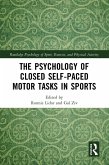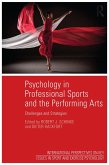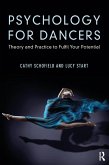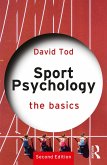In these tasks, performers are able to plan their actions in advance. They can activate a plan, a strategy, a protocol, or a procedure - what we term a ritual behavior. Effective rituals are usually achieved with a high degree of consistency. That is, either deliberately or subconsciously they become an integral part of the act itself. The Psychology of Closed Self-Paced Motor Tasks in Sports explores those plans, procedures, protocols, strategies, and techniques that aim at facilitating the performance and learning of closed self-paced motor tasks. Included in the instructional-psychological routines discussed in this book are pre-performance routines, focusing attention, motor imagery, enhanced expectancies, autonomy support, gaze strategies, self-talk, and periodization.
The routines discussed in the book are evidence-based. Based on updated reviews of laboratory and field inquiries on the discussed instructional-psychological routines, practical implications are given for those professionals who teach closed self-paced motor tasks, including coaches, instructors, and sport psychology consultants.
Dieser Download kann aus rechtlichen Gründen nur mit Rechnungsadresse in A, B, BG, CY, CZ, D, DK, EW, E, FIN, F, GR, HR, H, IRL, I, LT, L, LR, M, NL, PL, P, R, S, SLO, SK ausgeliefert werden.
-Robin Jackson, Loughborough University









